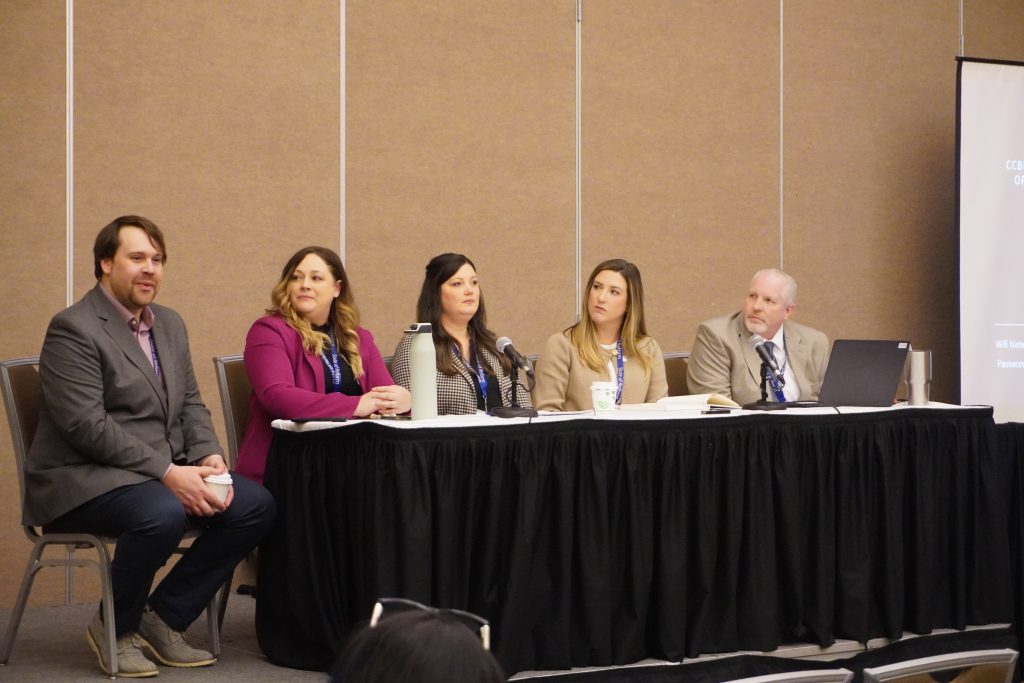
“If you can’t fly, run. If you can’t run, walk. If you can’t walk, crawl, but by all means, keep moving.” — Martin Luther King, Jr.
 Behavioral health is one of the four key strategic pillars for the MHA this program year. The MHA Board of Trustees tasked our association with prioritizing the issue and to identify solutions that can make a meaningful difference for patients and providers. This issue is particularly important to current MHA Board Chair Shannon Striebich, president and CEO of Trinity Health Michigan, who specifically focused on this topic during her opening remarks as chair during the 2023 MHA Annual Meeting last June. At Chair Striebich’s direction, the MHA team is hard at work on a variety of initiatives that I’m happy to share.
Behavioral health is one of the four key strategic pillars for the MHA this program year. The MHA Board of Trustees tasked our association with prioritizing the issue and to identify solutions that can make a meaningful difference for patients and providers. This issue is particularly important to current MHA Board Chair Shannon Striebich, president and CEO of Trinity Health Michigan, who specifically focused on this topic during her opening remarks as chair during the 2023 MHA Annual Meeting last June. At Chair Striebich’s direction, the MHA team is hard at work on a variety of initiatives that I’m happy to share.
The MHA Behavioral Health Integration Council, chaired by Linda Peterson, MD, from McLaren Greater Lansing, and staffed by Lauren LaPine, senior director, legislative and public policy, MHA, guides our policy efforts for behavioral and physical health integration. The council develops recommendations addressing access to behavioral healthcare services and fostering integration with the greater healthcare delivery system. Their agendas are robust and the member engagement is fantastic.
The MHA collects data through a weekly survey of our member hospitals to better understand and document our behavioral health challenges in real time. This data shows more than 150 patients, including children, are sitting in a Michigan hospital emergency department (ED) every day waiting for the appropriate healthcare services. Many are waiting for an available behavioral health bed, while one-third are waiting just for an evaluation to determine treatment needs. And many of these patients are the most vulnerable in our community, supported by Medicaid or Medicare. Unfortunately, we know 33% of the Medicaid patients will spend more than 48 hours waiting in the ED. These patients are not in the appropriate setting to receive the services and care they need, while hospitals are spending significant resources to care for these patients until they find placement. This includes anything from attending to basic needs, including food and clothing, to their clinical needs, whether that is through psychiatric services, prescription drugs and additional safety and facility needs.
With the council’s encouragement, the MHA last year was successful in securing new funding from the state in the amount of $50 million to support a competitive grant program for Michigan healthcare entities to expand access to pediatric inpatient behavioral health services. The MHA was the fiduciary of this program and disseminated the funding to our members in a timely fashion.
The MHA is an advocacy organization, and in addition to funding like this, the concept of identifying public policy that can help to address specific healthcare challenges is one of our core competencies. In that vein, we worked very hard with our members, and subsequently with our legislative champions, to draft and introduce important behavioral health legislation. We are very pleased that just last month, several bills were formally introduced that will address some of the challenges hospitals experience when behavioral health patients seek care in the ED. The four bills would require sharing the availability of community based mental health and substance use disorder services (Senate Bill 802), expanding pre-admission screening responsibilities in the ED to more clinically qualified staff (Senate Bill 806), expanding hospital swing bed eligibility to include inpatient behavioral health patients (Senate Bill 811) and removing arbitrary commercial insurance limitations on the duration of inpatient behavioral health admissions (Senate Bill 833).
These bills will be a focus for our advocacy and policy teams for the remainder of this legislative session. We developed an infographic that is now available and will be shared with lawmakers to help them understand the significance of the behavioral health crisis, but also the solutions that can help patients receive the care they need in a timely manner, while alleviating the stress placed on healthcare workers and hospitals.
The Michigan Department of Health and Human Services (MDHHS) is a key partner in this work and the MHA is engaged with the MDHHS on several initiatives. First is collaborating with the MDHHS to create a statewide psychiatric bed registry, as outlined in state law signed in 2018. Such a registry has the potential to better inform healthcare providers of bed availability to reduce the amount of time patients are waiting to receive available placement. The MHA is also participating in a committee to improve behavioral health patient transport. Lastly, our organizations are working closely to expand access to Psychiatric Residential Treatment Facilities (PRTFs), with the aim to establish 150 PRTF beds across the state.
The MHA also represents the interests of hospitals and health systems in several workgroups. Those include the Michigan Judicial Council Behavioral Health Improvements Workgroup to develop new strategies to divert adults and youth with mental health and substance use disorders away from the justice system and to connect them with needed behavioral health services. The MHA also participates in the Assisted Outpatient Treatment (AOT) Workgroup, which developed an AOT toolkit for courts, community mental health agencies, jails and hospitals and health systems to use to expand statewide access to AOT. These workgroups demonstrate the breadth of the MHA’s work and the number of stakeholders involved across the state on this issue.
We know our behavioral health challenges will not be solved overnight, and it would be easy to throw up our hands and shift our attention and energy to “easier” issues. Many behavioral health patients have complex needs that require many partners working together to fill in the gaps within the system and to improve access to care. The good news is there has never been a brighter light shined on this issue, and the stigma associated with behavioral health challenges is beginning to fade. The MHA is proud to work with our member hospitals and all our partners in this critical work, and I am confident that we are making a real difference. As Dr. King encouraged, we need to keep moving.
As always, I welcome your thoughts.








 The MHA released a new episode of the MiCare Champion Cast, which features interviews with healthcare policy experts in Michigan discussing key issues that impact healthcare and the health of communities.
The MHA released a new episode of the MiCare Champion Cast, which features interviews with healthcare policy experts in Michigan discussing key issues that impact healthcare and the health of communities.